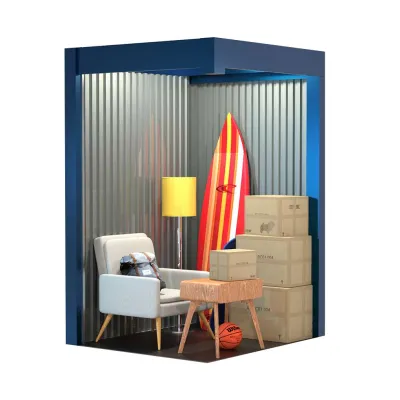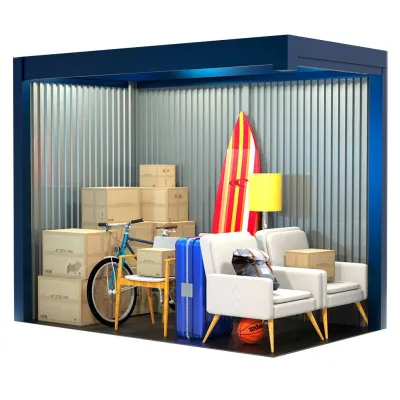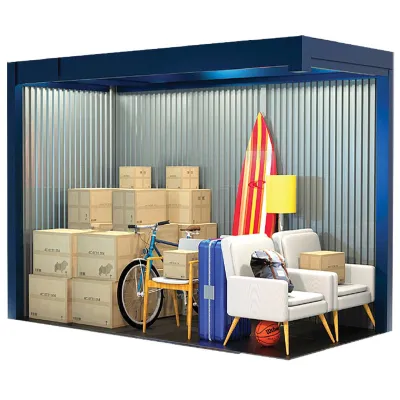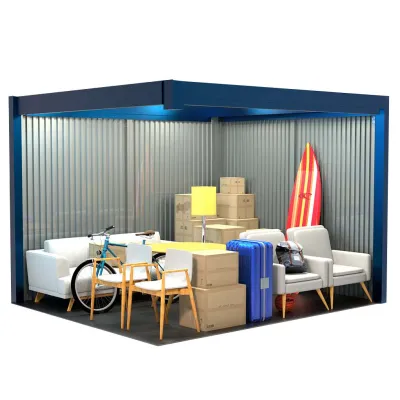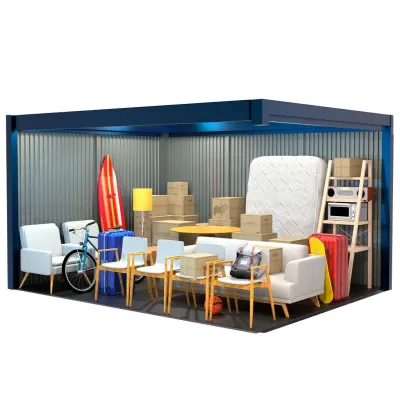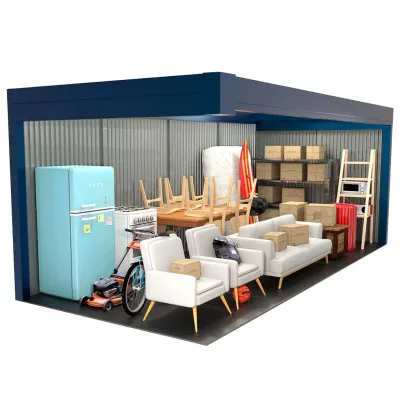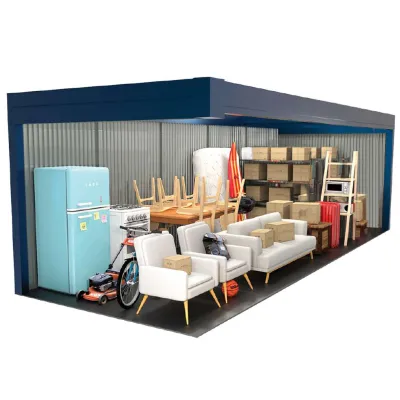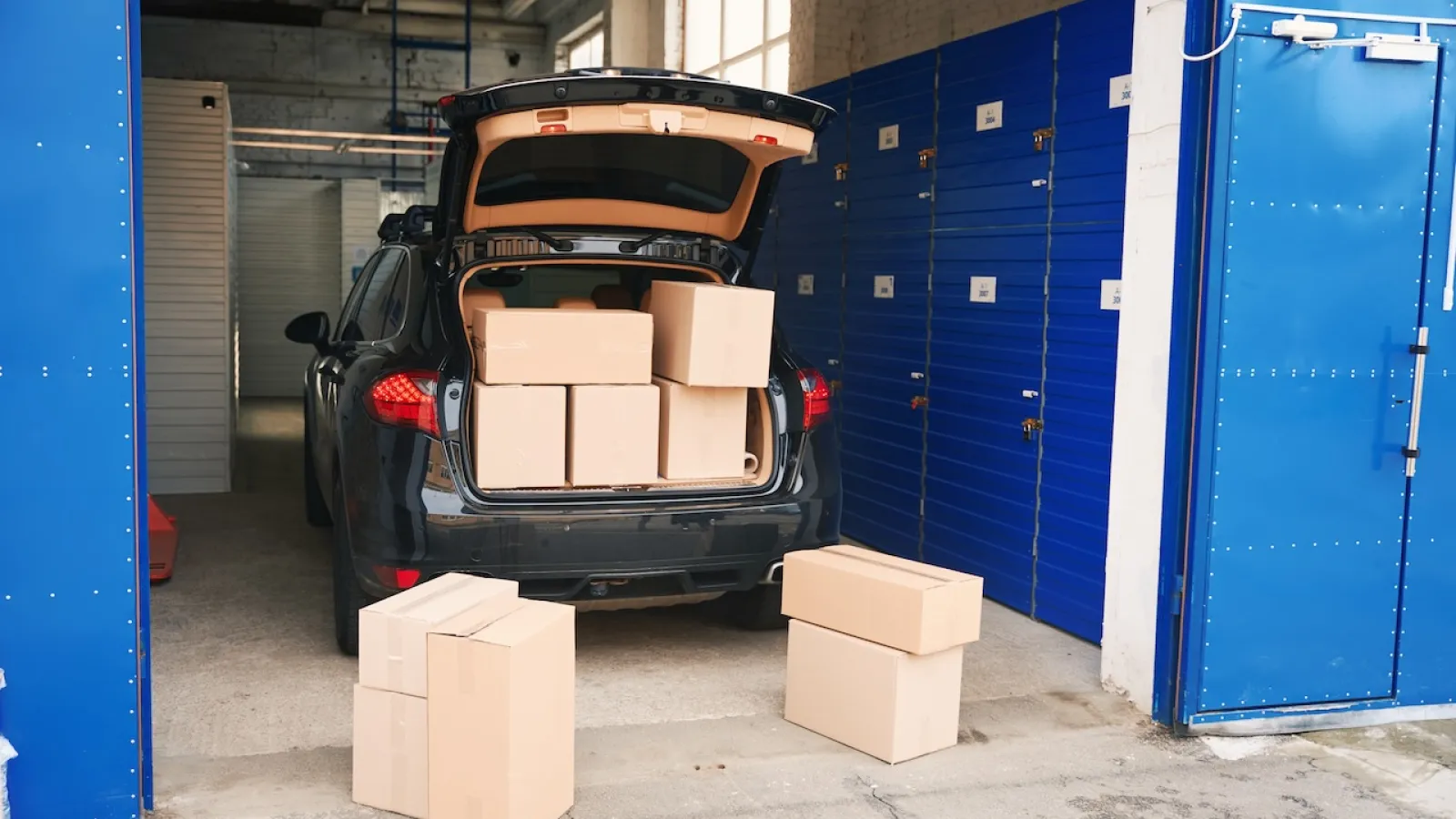
Car Storage 101: Tips for Safely Storing Your Vehicle Long-Term
Flat tires, corroded batteries, or even funky smells in the cabin—these are all nasty surprises you don't want to deal with when you're ready to hit the road. If you're planning on parking your car for the long haul, whether it's because you're traveling, downsizing the cars in your household, or simply don't have the space, proper storage is make or break.
If you're considering a specific storage unit for cars, here's everything you need to know about protecting your vehicle even while it's not on the road.
Why Are You Considering Long-Term Car Storage?
Cars are built to move. They thrive on regular use, which keeps the engine running smoothly, the battery charged, and the tires in shape. But life happens, and there are many reasons you might need to look for a storage unit for your car.
1. Optimize Space at Home
Do you have a garage overflowing with bikes, tools, and everything except your car? Opting for a well-prepared car storage unit can free up space while ensuring your vehicle is protected.
2. Unused Vehicle? Keep it Protected
Say you're holding onto a classic car you don't drive daily or a secondary vehicle that's only used seasonally. Leaving it parked on the street or even in your driveway can expose it to the elements, theft, or damage.
3. Traveling for an Extended Period
Heading abroad for months or just taking a work assignment out of town? Instead of leaving your car unattended in uncertain conditions, storing it properly increases the likelihood it'll be good to go when you're back.
Tips for Safely Storing Your Car Long-Term
When storing a car for months—or even years—proper preparation can save you from costly repairs and unnecessary maintenance.
1. Fill Your Gas Tank
It might sound counterintuitive, but keeping your gas tank full reduces the risk of condensation forming inside the tank. Over time, condensation can mix with whatever fuel remains and damage your engine. To take it a step further, consider adding a fuel stabilizer to prevent the gas from deteriorating and gumming up your fuel system.
2. Cover Your Car
A weather-appropriate car cover is a must-have. Whether your car is indoors or out, a cover protects it from dust, moisture, and potential dings. Ensure it's a breathable cover to prevent trapped moisture, which can cause rust.
3. Disconnect the Battery
If your car will sit for longer than four weeks, disconnect the battery to prevent it from draining completely. Alternatively, you can invest in a trickle charger or battery maintainer to keep the battery in good health.
4. Choose a Climate-Controlled Storage Unit
The environment where you store your car plays a huge role in its condition. Humid areas can lead to mold, rust, and corrosion, while extreme temperatures strain your vehicle's materials. Climate-controlled storage units for cars solve this problem by maintaining a stable, cool, and well-ventilated environment. It's truly a game-changer as long-term storage for vehicles.
5. Change the Oil and Top Off Fluids
Old oil contains contaminants that could damage your engine parts while your car is in storage. Changing the oil and topping off fluids like coolant and brake fluid keeps your car's mechanical components lubricated and protected.
6. Protect Your Windshield Wipers
Wrap the wiper blades in plastic or lift them away from the glass to prevent them from sticking to and damaging the windshield over time. This simple hack extends their lifespan significantly.
7. Give It a Thorough Cleaning
Don't skip the wash! Dirt, grime, and even bird droppings left on your car's surface can damage the paint over time. Vacuum out the interior to prevent smells, mold, or unwelcome pests.
8. Don't Forget the Tires
When parked long-term, tires can develop flat spots from the constant pressure of standing still. If possible, put the car on jack stands to relieve the weight. If that's not an option, slightly overinflate the tires to help them maintain their shape.
9. Seal Off Openings
Critters love cozy, empty vehicles! Block tailpipes and other small openings (just remember to remove them before driving) to prevent furry guests from moving in while your car rests.
10. Check in Occasionally
If possible, start your car and take it for a short drive every few weeks to circulate fluids, keep the battery charged, and prevent flat-spotting on tires.
Bonus Tip? Consider your insurance coverage. Even when stored, it's smart to maintain comprehensive insurance to safeguard against unforeseen mishaps like theft or weather damage.
Why Consider Professional Storage Units for Cars?
If you don't have a reliable space at home for your car, storage units for cars are an excellent solution. Here's why they're worth it:
Protection from Weather: Your car is shielded from the elements, from scorching sun to freezing temperatures.
Security: Storage units typically come with 24/7 surveillance and security measures for peace of mind.
Convenience: No more worrying about city parking regulations or your HOA rules.
Custom Options: Many facilities offer climate-controlled options, keeping humidity and temperature perfectly balanced.
By parking your car in a dedicated storage unit, you're investing in its longevity and performance.
Roll Out Smoothly When It's Time to Drive Again
When you're ready to take your car out of storage, here's a quick checklist:
Reconnect the battery.
Check tire pressure and inflate to the recommended levels.
Remove any protective seals (ex., from wipers or exhaust pipes).
Take it for a short drive to ensure everything feels and functions smoothly.
Midgard Self Storage offers storage units for cars that keep your vehicle accessible, safe from the elements, and in top condition. Find a unit near you and see if Midgard would be a good fit for your long-term automobile storage.

